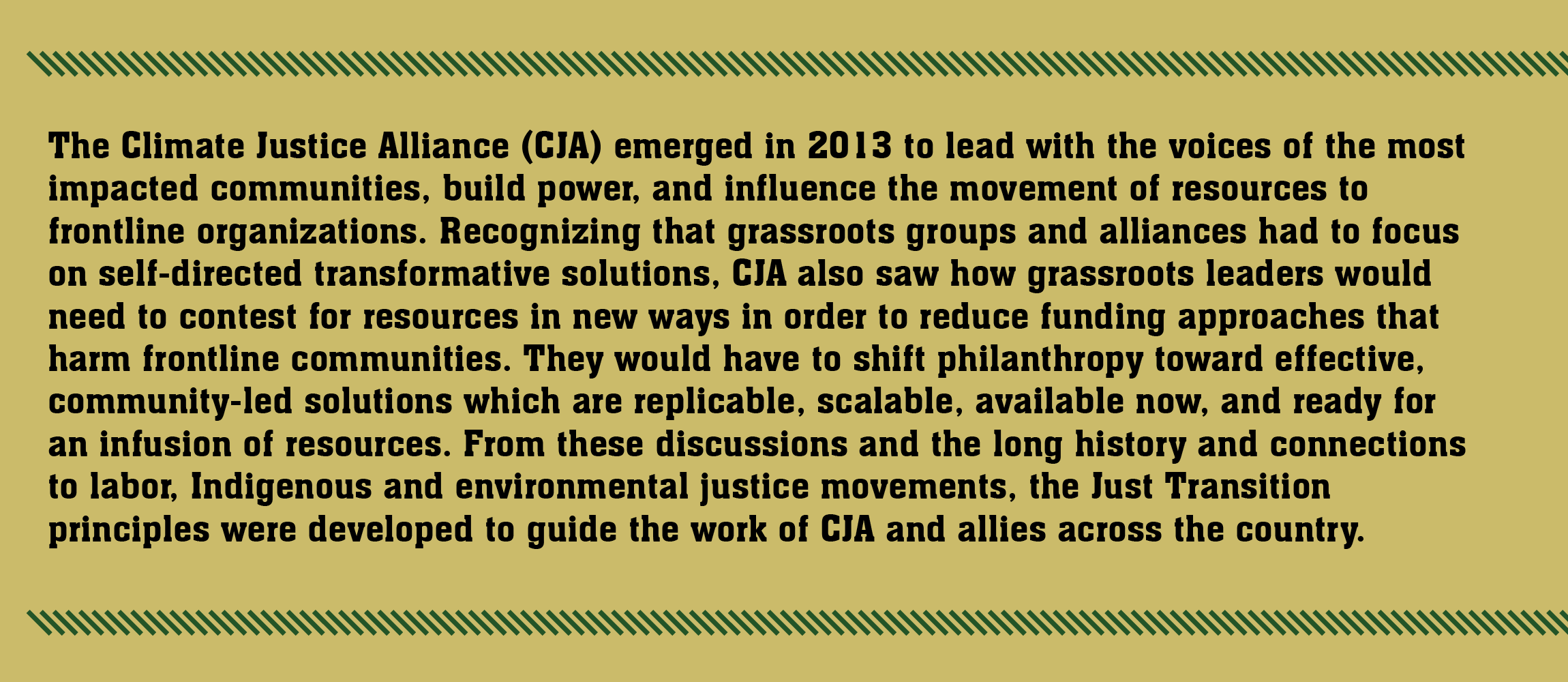
collage design by Darius Wilmore featuring photos via the Climate Justice Alliance (Flickr)
In early 2020, Jeff Bezos announced he would distribute $10 billion in funding to address climate change issues by 2030 and move these funds through a new entity: the Bezos Earth Fund (BEF). While the news was greeted with appreciation in some circles, frontline leaders, aligned funders and others were apprehensive and concerned about the limited dollars going to climate justice and the growing influence of billionaire philanthropists on determining how to approach and fund climate change solutions.
While under-resourced grassroots organizations and communities on the frontlines of the struggle for climate, racial and economic justice are designing equity-centric systemic solutions to systemic problems, billionaire philanthropists and the field of philanthropic capitalism1 are doubling down on narrow approaches. These include dangerous technocratic and market-driven “fixes” that often hide and promote using language they’ve co-opted from social movements.
These profit-driven approaches of the ultra-rich fail to address the root causes of our climate crisis, which include resource extraction from and reliance on the fossil fuel economy, exploitation of labor, and accumulated wealth. They perpetuate historical harm to frontline communities, continue to concentrate wealth and power, work within the current rules of the extractive system, and in fact, attempt to prop up a racialized capitalist economy that is simultaneously creating massive income inequality and exacerbating enormous threats to the viability of human life.
Shortly after the BEF announcement, the CJA and the Regenerative Economies Organizing (REO) Collaborative published an open letter calling on Jeff Bezos and the BEF to prioritize equity and frontline climate leadership and to steer funding to environmental justice (EJ) and climate justice (CJ) organizations on the frontlines of the climate crisis.
However, after the massive first round of grants still went overwhelmingly to traditional, very well-resourced big green groups, CJ movement leaders and allies set their sights on the big green and funder intermediary recipients of BEF grants and called on them to transfer a portion of their BEF grants to frontline organizations. In 2021, CJ leaders and allies created the grassroots-led Fund for Frontline Power (F4FP) as a vehicle for receiving that funding and additional funding from other supporters. This resulted in $141 million being moved into 4 grassroots-accountable intermediaries that represent upwards of 500 grantee partners. While this doubled U.S. climate philanthropy for equity via intermediary funds, it was still a paltry amount compared to the lump sum $100 million grants that 5 already disproportionately resourced, predominantly white–led big green organizations each received.
Not only did this disparity underscore the historic inequity between the mainstream environmental and CJ movements, it topped off the already-overflowing coffers of several big green groups with climate approaches that have consistently been called out as narrow, top-down and downright harmful to frontline communities.
In contrast, the F4FP shifts decision-making and control back to communities. Hosted by The Solutions Project at the request of dozens of frontline groups and alliances, F4FP ensures that resources flow from major donors to community-based CJ groups and frontline-led climate solutions. In total, the F4FP has thus far raised $6.395 million for grantmaking and operations from 14 contributors, of which 7 are also BEF grantees.
To download the PDF of “Good, Bad, Bezos And Beyond: Climate Philanthropy And The Grassroots” report, click here.

